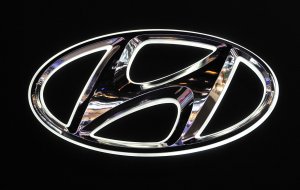Feb. 1 (UPI) — The United Auto Workers union said Thursday that Hyundai workers have signed up more than 30% of the auto workers at a plant in Alabama for an organizing campaign to join the union.
In a video produced by the UAW, pro-union Hyundai workers at the Montgomery, Ala., plant said they are standing up to join the UAW.
“Montgomery, Alabama — the city where Rosa Parks sat down, and the city where thousands of Hyundai workers are ready to stand up,” workers in the video said.
The workers in the video expressed their reasons for wanting to join the UAW.
Drena Smith has worked for Hyundai for 19 years.
“I’m getting close to retirement and the company has literally broken me down,” Smith said. “We need compensation for that when we retire. Not just a cake and a car discount for a car we can’t afford to buy because we won’t have any income. We need a real retirement; we need to win our union.”
Smith, who works in the paint shop at the plant, has had rotator cuff surgery on both shoulders and carpal tunnel surgery in one hand.
Dewayne Naylor works in the Hyundai plant Body Shop Quality Control.
“Over the last ten years, most of my raises have been just 12 or 13 cents an hour. The price of their cars, they go up every year. But my pay don’t. If we don’t get the union here, our pay will never keep up,” Naylor said.
Alabama Republican Governor Kay Ivey last month opposed the auto worker’s efforts to join the UAW, saying she “will always stand strong for our hardworking men and women” but alleging the “Alabama model for economic success is under attack.”
“A national labor union, the United Automotive Workers (UAW), is ramping up efforts to target non-union automakers throughout the United States, including ours here in Alabama,” she said.
Ivey said Alabama is a top five auto manufacturing state with 50,000 workers in that industry.
National federal labor law gives workers the legal right to decide themselves whether or not to join a union. Once they decide to join a union, employers are required by law to recognize the union and to enter collective bargaining with the workers on compensation and working conditions.
The National Labor Relations Act makes clear that “it is the policy of the United States to encourage collective bargaining by protecting workers’ full freedom of association. The NLRA protects workplace democracy by providing employees at private-sector workplaces the fundamental right to seek better working conditions and designation of representation without fear of retaliation.”
The Montgomery Hyundai organizing campaign is supported by the UAW, but workers at the plant who believe a union will improve their lives are choosing to sign up fellow workers to join the union.
Ronald Terry, a temp for three years before becoming full-time, said he was paid $11.03 an hour the whole time he was a temp.
“With the union, we can bring our pay and benefits up to a higher standard,” Terry said. “That’s how you motivate your workers. It’s not just good for us, it’s good for the product we produce.”
According to the UAW, since the union’s successful strike against the Detroit Three automakers, more than 10,000 non-union autoworkers have signed union cards “at Volkswagen in Chattanooga, Tennessee, and Mercedes in Vance, Alabama, while workers at over two dozen other facilities continue to organize.”
In November, UAW President Sean Fain said the Union was “going to organize like we’ve never organized before” following the strike that won record contracts for autoworkers at Stellantis, GM and Ford.
The UAW represents 47% of the U.S. automotive workforce in vehicle manufacturing. The organizing campaign seeks to gain support for the union from the other 57% who are not represented by unions.
Toyota, Honda, Hyundai, Subaru and Nissan all announced plans to raise worker pay following the UAW strike win.

COMMENTS
Please let us know if you're having issues with commenting.